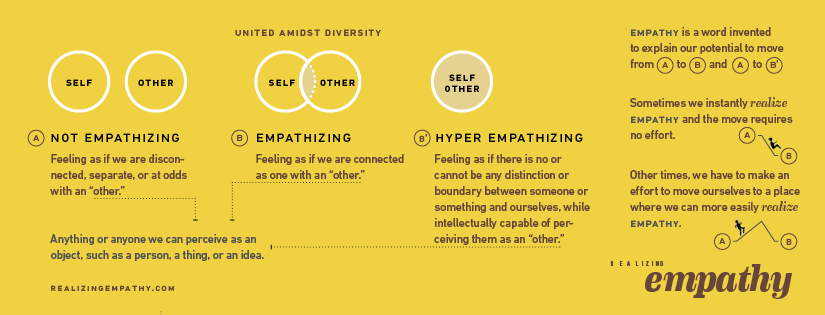I thought I was empathizing.
I wasn’t.
It was nearly 20 years ago.
I had a dear friend who was suffering from bipolar depression.
At the time, I had recently graduated from college with a degree in computer science. I prided myself in being an excellent problem solver. So I was determined… to solve my friend’s problem.
So What did I do? Well, I started by reading books, articles, papers, you name it, I read them all.
After gaining enough understanding of the theory of depression, I went to a local support group looking for some practical advice.
What I learned there was that the best way to help my friend was to try and empathize with her.
What this meant was that the next time my friend got depressed, I was to sit down with her and listen to her carefully. Once I could understand how she’s feeling and why, I was to express this understanding back to her. According to the people at the support group, if my understanding was correct, my friend will feel understood and that’ll make her feel better.
I was surprised.
It sounded too easy to be true.
…
But then I tried.
…
The whole time I was trying to empathize with her, she kept yelling, screaming, and bawling. Telling me that I did not understand.
What was I supposed to do? I kept changing what I said, over and over and over again, hoping… that I would eventually get through to her.
But I couldn’t.
Nearly half an hour went by and I was just sitting there with all my energy drained, exhausted and unable to figure out what I was missing.
But then… something occurred to me.
I suddenly remembered that, earlier in the day, I had said something to her, which, in hindsight, was hurtful.
So I told her that.
And like magic, she stopped yelling and screaming, as she sat there sobbing… while I finally… empathized with her.
…
What I realize now is that everything I’d been telling her up to that point was framed in such a way that it was all. her. fault, and I had nothing to do with it.
This was not because I had malicious intent. In fact, I had great intentions. I cared for her well-being. I wanted to help. This is the very definition of compassion!
Yet, in hindsight, I learned that despite best intentions, compassion actually lead me to frame the situation as a problem to be solved. And in doing so, 3 things happened to my mindset. 3 things… that lead me to unintentionally do more harm than good.
Now, what do I mean by this?




